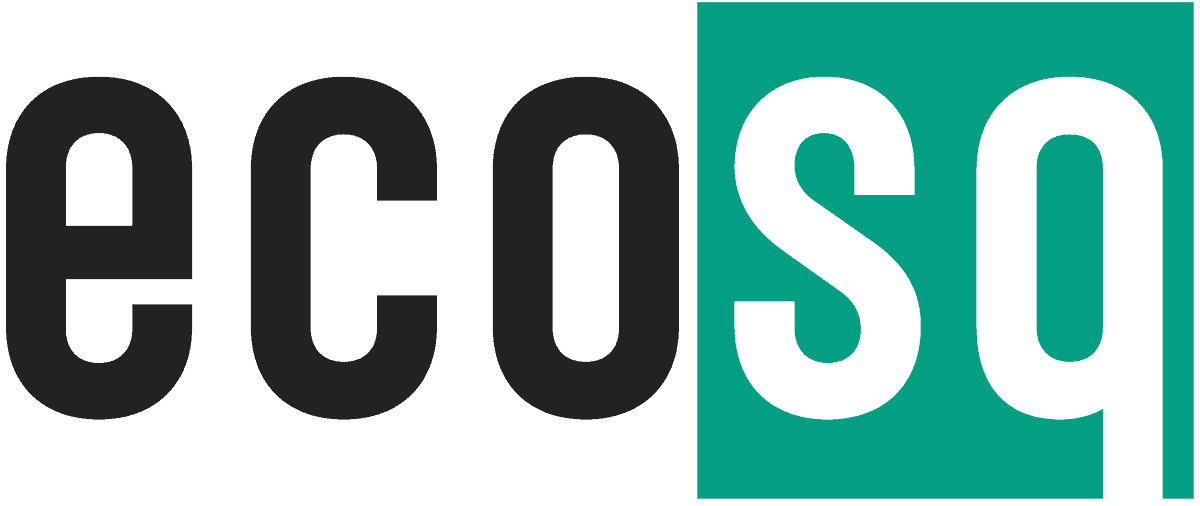Linux and Recycling: An In-Depth Guide to Building a Sustainable Future One Byte at a Time
This article was previously published in our newsletter. The content may no longer be up to date.
In an age where climate change and environmental sustainability are at the forefront of public discourse, the role of technology in building a greener future has become increasingly evident. This comprehensive guide explores how the Linux operating system, with its ethos of openness and collaboration, is powering impactful recycling and upcycling projects across the world.
Whether you’re a sustainability enthusiast looking to get hands-on with eco-conscious tech or simply want to understand how Linux facilitates recycling, this guide has got you covered. Read on to discover how Linux-based solutions are diverting waste from landfills, repurposing discarded materials, fostering community engagement, and ultimately building a more sustainable future, one byte at a time.
An Introduction to Linux and Its Role in Recycling
Before we dive into the nitty-gritty details, let’s start with a high-level overview of Linux and why it’s well-suited for recycling projects.
What is Linux?
Linux is a free, open-source operating system that powers everything from personal computers to smartphones, servers, and embedded systems. Created in 1991 by Linus Torvalds, Linux source code can be freely accessed, modified, and shared by anyone.
Linux Philosophy and Values
Linux is all about openness, transparency, and collaboration. The open-source model fosters innovation and progress as developers from around the world contribute to improving Linux. This participatory, decentralized approach aligns perfectly with sustainability initiatives looking to share knowledge and empower communities.
Why Linux for Recycling?
- Cost-effective – Linux and open-source software are free to access and use. This makes setting up recycling systems affordable.
- Customizable – Linux can be tweaked and tailored to meet the exact needs of a recycling project.
- Transparent & Open – Linux recycling solutions openly share their processes and systems, enabling replication and progress.
- Supports Innovation – Linux provides a fertile ground for experimentation with recycled materials and pioneering eco-conscious technologies.
In a nutshell, Linux enables practically anyone, anywhere to build tools and solutions that turn waste into resources, contributing to a circular economy.
DIY Recycling Machines Powered by Linux
One of the most exciting ways Linux fuels sustainability is by enabling DIY recycling machines and systems. Makers, tinkerers, and eco-advocates around the globe are building custom recycling tools powered by Linux computers like Raspberry Pi. Let’s look at some trailblazing examples:
Precious Plastic – Machines for Community Recycling
Precious Plastic is an awe-inspiring open-source project that provides blueprints and instructions for building recycling machines using basic, low-cost materials. Their ingenious machines, powered by Linux devices, include shredders, extruders, injection molders, and compression machines.
Anyone can build these machines using discarded plastic and simple tools like drills. Once built, these recycling systems can effectively process plastic waste into valuable raw materials or products, right in their local community.
Precious Plastic’s transparent, collaborative approach via GitHub has spawned recycling initiatives in over 100 countries. These community-operated recycling facilities keep plastics out of landfills and waterways, building self-sufficiency. Linux enables the project’s open-source ethos that is key to its global impact.
The ProtoCycler – Turning Waste into 3D Printing Filament
ProtoCycler by ReDeTec is an open-source plastic filament extruder that turns plastic waste into 3D printer filament. This Linux-controlled recycling machine melts down used plastic like water bottles and re-forms it into 1.75mm filament that can be used for 3D printing.
For 3D printing enthusiasts and makers, ProtoCycler provides an eco-friendly and cost-effective way to create their own filament from plastic waste rather than buying virgin plastic. The associated recycling community shares ideas on how to refine filament materials and quality.
This innovative solution is empowering makerspaces, schools, and organizations to turn trash into a resource for creativity while diverting plastic waste from landfills. The ProtoCycler project, by publishing open-source plans, enables this impact on a global scale.
RecycleBot – Open-Source Plastic Recycling and Extrusion
Going a step further than filament extrusion, RecycleBots take plastic waste and convert it into 3D printer feedstock as well as recycled plastic lumber suitable for many uses. This open-source waste plastic extruder and injector project by Appropedia provides complete plans and instructions for building your own RecycleBot.
Powered by Linux computers like Raspberry Pi, RecycleBots can handle everything from polyethylene terephthalate (PET) to polypropylene plastic waste. They can extrude the recycled plastic into filament or useful lumber-like bars using DIY molds. Communities can effectively manage their plastic waste sustainably using this solution.
These are just a few outstanding examples of DIY recycling systems enabled by Linux. The open-source community is rapidly innovating new ways to leverage Linux in addressing the plastic waste crisis and transitioning to a circular economy.
Linux-Powered Industrial Recycling Technology
While DIY solutions are empowering communities globally, Linux also powers large-scale industrial recycling systems and machinery. Let’s look at how Linux enables cutting-edge recycling tech on an industrial level:
AI and Computer Vision for Automated Recycling
From conveyor belts to sorting stations, Linux computers power automated recycling facilities capable of efficiently processing huge volumes of material via AI and computer vision. Systems like the [Max-AI](https://www.bulkhandlingsystems.com/ automation-system/max-ai/) identify different materials arriving on the line and guide robotic sorters to separate them effectively for optimal recycling.
Industrial Shredders and Granulators
Heavy-duty shredders like Enerpat’s ECC Granulator run on Linux-based operating panels. These industrial machines efficiently break down materials like plastics, wood, and e-waste into smaller pieces for separation and recycling. Linux allows these shredders to be programmed and adjusted to handle different throughput rates and materials.
Precise Extrusion Systems
For advanced recycling plants, Linux controls precise extrusion lines that process recycled plastic, paper, and even metals into filaments, bars, and other optimized materials suitable for manufacturing. The real-time monitoring and control enabled by Linux allow these extruders to function with precision and efficiency.
While Linux originated from grassroots open-source origins, it now also powers large-scale industrial recycling innovation. As environmental consciousness grows, we can expect ever-smarter recycling powered by Linux.
Upcycling with Linux-Based 3D Printers
3D printing is an incredibly inventive way to upcycle discarded products and materials into useful new objects. Linux forms the foundation of many open-source 3D printers, bringing this technological innovation into the hands of individuals and communities.
RepRap, one of the earliest open-source 3D printing projects, uses Linux to enable a 3D printer that can print its own components. The RepRap community has spawned many DIY 3D printer designs – that increase access to this powerful upcycling technology.
Today, consumer 3D printers like Prusa also run on Linux. These accessible 3D printers allow creative upcycling applications like:
- Turning old plastic bottles and containers into useful everyday objects, from spatulas to even phone cases!
- Upcycling discarded electronics components like motors into functional IoT devices.
- Refashioning worn out textiles and fabrics into trendy garments.
- Reinvigorating metal scrap and wood offcuts by giving them renewed purpose.
From schools to community makerspaces, Linux-powered 3D printing provides an avenue for creative upcycling while spreading awareness about waste.
Key Benefits of Linux for Recycling Efforts
Let’s recap some of the key advantages and efficiencies Linux brings to various recycling and upcycling initiatives:
- Cost Savings – Delivering capabilities without recurring software licensing fees.
- Flexibility – Ability to customize recycling solutions for specific needs and contexts.
- Accessibility – Open-source nature makes it accessible to grassroots communities.
- Transparency – Replicable and auditable processes compared to closed proprietary systems.
- Education – Facilitates hands-on learning about sustainability.
- Scalability – Able to power small home setups to industrial-scale smart recycling plants.
- Resilience – Not dependent on any single private corporate entity.
- Innovation – Fosters rapid prototyping of recycling technology.
These unique advantages make Linux a driving force behind technology-enabled sustainability solutions.
Eco-Conscious Communities Leveraging Linux Recycling
Beyond inspiring individual projects, Linux serves as a foundation for entire eco-conscious communities dedicated to recycling. Here are two outstanding examples of communities centered around Linux-based sustainability:
Precious Plastic Lagos, Nigeria
In Lagos, Nigeria, Precious Plastic Lagos is empowering locals to address plastic waste through technology. This makerspace teaches community members to build Precious Plastic recycling machines using Linux devices like Raspberry Pi.
They leverage these DIY tools to process locally collected plastic waste into valuable recycled products, providing economic opportunity to their community. Members can volunteer in exchange for access to the space, tools, and machines to launch their own plastic upcycling enterprises.
Sustainable Recycling Industries, New Zealand
In Auckland, New Zealand, Sustainable Recycling Industries is running an innovative e-waste recycling program. They receive donated electronics from individuals and organizations, then leverage Linux devices to wipe data securely before disassembling devices manually. These components are sorted, recycled and reused while providing on-the-job training to marginalized communities.
This social enterprise keeps electronics out of the waste stream while providing employment and skill development opportunities. Linux plays an instrumental role in powering their operations.
Starting Your Own Linux Recycling or Upcycling Project
If this has inspired you to kickstart your own Linux sustainability project, here are some steps to guide you:
Learn About Linux
If new to Linux, start learning Linux basics by reading guides, taking courses, or joining forums. Focus on how to install and operate Linux on devices like Raspberry Pi.
Get Access to Linux
Obtain Linux by downloading free open-source distributions or buying low-cost Linux boards like Raspberry Pi. Try Linux on old laptops or PCs by replacing the operating system.
Explore Open-Source Recycling Tools
Search for open-source recycling, upcycling, DIY, and sustainability projects that align with your goals. See how others have built tools and solutions powered by Linux.
Start Small, Iterate and Grow
Don’t attempt too complex a project early on. Start with small experiments and prototyping, then iterate based on lessons learned. Advance to more sophisticated solutions.
Collaborate with Communities
Connect with like-minded people via forums and local makerspaces. Collaborating will accelerate your progress through knowledge sharing.
Make an Impact
Once your project is operational, spread awareness and share documentation openly to maximize its impact. Inspire and enable others by publishing tutorials, guides, and videos.
The possibilities are endless when it comes to using Linux for environmental good. Bring your ideas to life!
The Future of Linux in Recycling
As technology progresses and environmental awareness grows globally, Linux will continue playing a pivotal role in sustainability solutions. Here are some exciting directions this could take shape:
Democratization of Recycling
Open-source recycling solutions will become accessible to a wider demographic, empowering localized community action worldwide.
Growth of Digital Commons
Designs and documentation will be increasingly shared via creative commons licenses rather than copyrights.
Decentralized, Distributed Recycling
Hyper-local micro-factories will disrupt centralized recycling and manufacturing, lowering environmental footprints.
Recycling-as-a-Service Platforms
On-demand recycling services will gain adoption, connecting waste generators to DIY and professional recyclers.
Circular Supply Chains
Recycled materials will be increasingly integrated into manufacturing supply chains, transitioning linear systems to circular ones.
Smarter Recycling Robots
AI and robots will automate complex disassembly, sorting, and processing tasks to improve recycling efficiency.
Blockchain for Transparency
Blockchain will provide transparency into waste streams, recyclers, and recycled material authenticity.
Through all these emerging innovations, Linux will likely continue playing the role of an open, trusted foundation.
Key Takeaways on Linux and Recycling
Here are the core insights to take away from this guide:
- Linux provides an accessible, transparent, and customizable foundation for recycling solutions.
- Open-source recycling machines like Precious Plastic enable DIY community action.
- Initiatives like ProtoCycler are turning plastic waste into 3D printing filament with Linux.
- Linux also powers industrial-scale recycling machinery and automation using AI.
- 3D printers running on Linux are facilitating creative upcycling applications.
- Linux helps build localized recycling ecosystems while spreading know-how.
- Linux cost-effectively scales recycling technology, from home setups to smart factories.
- Openness, democratization of technology, and collaboration are key to building a sustainable future.
Conclusion
The synergy between Linux and environmental sustainability highlights the positive change made possible when technology is open, transparent, and empowering.
By bringing recycling capabilities to communities across economic and geographic boundaries, Linux helps actualize the dream of a circular economy. Its participatory ethos enables collaborative solutions to one of humanity’s greatest challenges – averting environmental catastrophe.
Yet, this is just the start. The opportunity for Linux to facilitate sustainability innovation is boundless. Through creative open-source solutions, we inch closer to a future where the waste of today becomes the resources of tomorrow.
So get ready to unleash your inner tinkerer, maker, or sustainability advocate. With Linux as your ally, small steps can accumulate into massive positive change. Let’s keep building an eco-conscious future, one byte at a time!







